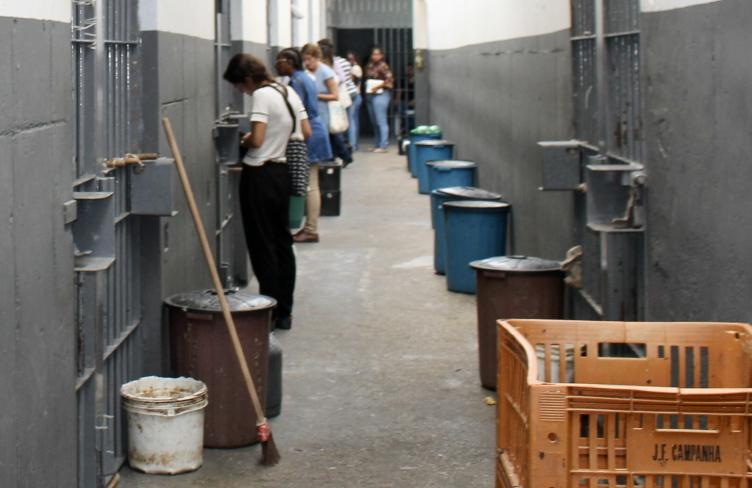
Almost everyone working on detention issues, be it as penitentiary staff or within National Human Rights Institutions or civil society organisations, knows about the Standard Minimum Rules for the Treatment of Prisoners. For decades, this was one of the only guidance documents available on how to treat persons deprived of their liberty.
Since the adoption in 1957, some provisions have grown to be outdated and it was the opinion of many that this crucial text needed to be revised. The process to review the text started in 2010 and concluded on 17 December 2015 with the revised Standard Minimum Rules being unanimously adopted by the United Nations General Assembly.
The revised text, to be known as the ‘Nelson Mandela Rules’ as a tribute to the former leader of South Africa who spent 27 years of his life behind bars, represents a significant improvement of the standards. While certain rules remain unchanged, other sections have been updated to reflect today’s standards and reality.
The Standard Minimum Rules have always been used by monitoring bodies to assess the conditions and treatment of persons deprived of their liberty. The APT has referred to this primary standard in all its tools on monitoring, including in the Detention Focus database. Detention Focus was launched last year to assist persons working on prison issues and has now been updated to align with the Mandela Rules.
Detention Focus database has been updated to include the Mandela Rules.
The revised Mandela Rules will certainly remain the main reference for everyone working on detention worldwide, including monitoring bodies. But what exactly is new in the Rules? These are some non-exhaustive examples of major improvements:
Prohibition of torture
Torture and ill-treatment are unequivocally prohibited in Rule 1. Surprisingly, this was not included in the older version of the Standard Minimum Rules and it was high time for the prohibition of torture to be explicitly included. Many other rules also deal with this prohibition, such as how to deal with and document allegations of torture, making sure that no other practice can amount to torture or ill-treatment (means of restraints, medical treatment, etc.) and the obligation to start an investigation as soon as an allegation of torture is made, even without a complaint. The Rules also prescribe for prison staff to be trained on the prohibition of torture and ill-treatment.
Stronger safeguards and improved practices
Safeguards upon arrest are seen as strong factors to prevent torture and ill-treatment. The Mandela Rules have strengthened this protection of persons deprived of their liberty. Prisoners have the right to communicate and consult with a legal adviser “without delay, interception or censorship and in full confidentiality”. Prisoners also have the right to immediately inform their families about their imprisonment, their transfer or about any serious illness or injury. A medical examination shall also be conducted by a physician on every prisoner upon their admission in a prison.
The Mandela Rules give a lot of guidance to prison administration on how to manage their files. The following information shall be recorded:
- Precise information to enable identity determination, respecting the prisoner’s self-perceived gender;
- reasons for commitment and responsible authority;
- day and hour of admission/transfer or release;
- any injuries or complaints about prior ill-treatment;
- emergency contacts;
- information related to the judicial process;
- information on behaviour and discipline; and
- allegations of torture and ill-treatment made unless they are confidential, etc.
Some detention issues are now also better regulated in the Rules to reduce the risk of torture and ill-treatment:
- Solitary confinement longer than 15 consecutive days is prohibited and shall only be used in exceptional cases, as a last resort and after independent review.
- Instruments of restraint should only be imposed when no lesser form of control would be effective.
- Guidance on body searches are developed and the Rules mention that intrusive searches should be undertaken only if absolutely necessary, etc.
Role of monitoring recognised
Another substantive improvement can be found in the section on internal and external inspections. The Standard Minimum Rules said almost nothing on inspection and it must be seen as a major progress that the Mandela Rules now recognise the importance of monitoring bodies. The Rules recommend setting up a twofold system of inspections, comprised of internal or administrative inspections conducted by the prison administration, as well as external inspections conducted by independent bodies (such as National Preventive Mechanisms established under the Optional Protocol to the UN Convention against Torture – OPCAT – or international bodies, such as the Subcommittee on Prevention of Torture or the European Committee for the Prevention of Torture). The powers of these monitoring bodies are also enshrined in the Rules:
- Access all information and locations.
- Freely choose which prisons to visit and the possibility to make unannounced visits.
- The possibility to conduct confidential interviews with prisoners of their choice.
- The power to make recommendations to competent authorities (the authorities also have a duty to indicate if they will implement those recommendations).
The Mandela Rules have clearly been influenced by the developments made internationally in the last decades, including by the adoption of the OPCAT. It is essential that the strong powers given to monitoring bodies in the OPCAT are now also reflected in the Rules.
Having a stronger text adopted is a huge step forward and it is now up to everyone working around detention issues to make sure that the Rules are disseminated, understood and implemented in places of deprivation of liberty. By adding a whole section on inspection, the Mandela Rules have recognised that transparency in places of detention is central to prevent torture and ill-treatment.
Banner photo: Victoria Hazou/UN Photo


